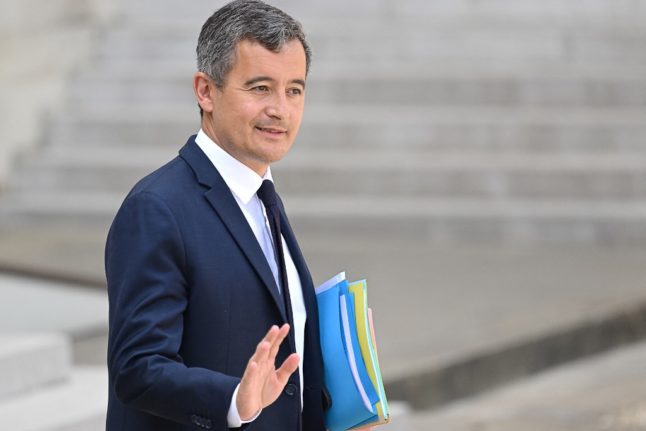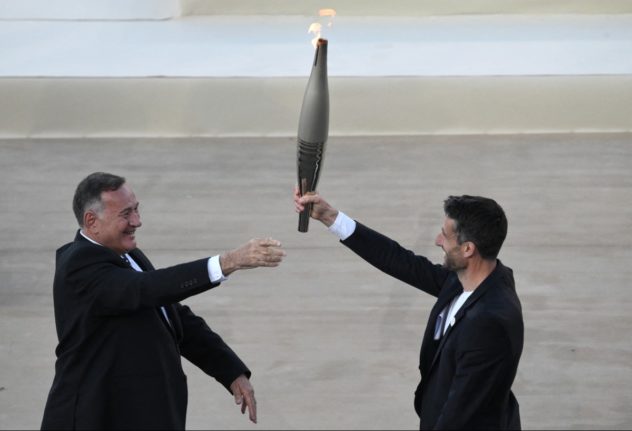It’s a row that erupts regularly in France – the use of the ‘burkini’ swimsuit for women – but this year there is an added wrinkle thanks to the country’s new anti-separatism law.
What has happened?
Local authorities in Grenoble, eastern France, have updated the rules on swimwear in municipal pools.
French pools typically have strict rules on what you can wear, which are set by the local authority.
For women the rule is generally a one-piece swimsuit or bikini, but not a monokini – the term in France for wearing bikini bottoms only, or going topless. For men it’s Speedos and not baggy swim-shorts and many areas also stipulate a swimming cap for both sexes.
These rules typically apply only to local-authority run pools, if you’re in a privately-owned pool such as one attached to a hotel, spa or campsite then it’s up to the owners to decide the rules and if you’re lucky enough to have a private pool then obviously you can wear (or not wear) what you want.
READ ALSO Why are the French so obsessed with Speedos?
Now authorities in Grenoble have decided to relax their rules and allow baggy swim shorts for men while women can go topless (monokini) or wear the full-cover swimsuit known as the ‘burkini’. This is essentially a swimsuit that has arms and legs, similar in shape to a wetsuit but made of lighter fabric, while some types also have a head covering.
Is this a problem?
No-one seems to have had an issue with the swim shorts or the topless rule, but the addition of the ‘burkini’ to the list of accepted swimwear has caused a major stir, with many lining up to condemn the move.
READ ALSO Laïcité: How does France’s secularism law work?
The burkini is predominantly worn by Muslim women, although some non-Muslim women also prefer it because it’s more modest and – for outdoor pools – provides better sun protection.
Grenoble’s mayor Eric Piolle, one of the country’s highest profile Green politicians who leads a broad left-wing coalition locally, has championed the city’s move as a victory.
“All we want is for women and men to be able to dress how they want,” Piolle told broadcaster RMC.
Is this France’s first burkini row?
Definitely not, the modest swimsuit has been causing a stir for some years now.
In 2016 several towns in the south of France attempted to ban the burkini on their beaches. This went all the way to the Constitutional Court, which ruled that such a ban was unconstitutional, and the State cannot dictate what people wear on the beach.
The situation in municipal pools is slightly different in that local authorities can make their own rules under local bylaws. Most pools don’t explicitly ban the burkini, but instead list what is acceptable – and that’s usually either a one-piece swimsuit or a bikini. These decisions are taken on hygiene, not religious, grounds.
The northwestern city of Rennes quietly updated its pool code in 2019 to allow burkinis and other types of swimwear, which seems to have passed unnoticed until the Grenoble row erupted.
Why is the Interior Minister getting involved?
What’s different about the latest row is the direct involvement of the Interior Minister Gérald Darmanin. He appears to have no objection to topless swimming in Grenoble, but he is very upset about women covering up when going for a dip.
No, he’s not some kind of creepy beauty pageant judge from the 1970s – he’s upset about laïcité.
Darmanin called the decision “an unacceptable provocation” that is “contrary to our values”.
M. Piolle, soutien de M. Melenchon, joue l’inacceptable provocation communautaire, contraire à nos valeurs. J’ai donné instruction au préfet de déférer en « déféré laïcité » la délibération permettant le port du « Burkini » et, le cas échéant, d’en demander le retrait.
— Gérald DARMANIN (@GDarmanin) May 17, 2022
He has ordered the local Préfet to open a review of the decision, and later announced that prosecutors had opened an inquiry into Alliance Citoyenne, a group that supports the wearing of burkinis in pools.
And the reason that he gets to intervene directly on the issue of local swimming pools rules is France’s ‘anti-separatism’ law that was passed in 2020.
This wide-ranging law covers all sorts of issues from radical preaching in mosques to home-schooling, but it also bans local councils from agreeing to ‘religious demands’ and among its provisions it allows the Interior Minister to intervene directly on certain issues.
So far this power has been used mostly to deal with extremism in mosques, several of which have been closed down for short periods while extremist preachers were removed.
Darmanin’s foray into women’s swimwear seems to represent an extension of the use of these powers.
Is this all because there is an election coming up?
Parliamentary elections are coming up in June and the political temperature is rising. It’s certainly noticeable that in Darmanin’s initial tweet about the matter he referred to Grenoble mayor Eric Piolle as a “supporter of Mélenchon”, although Piolle is actually a member of the Green party.
Mélenchon and his alliance of leftist parties are currently the main rival for Macron’s LREM at the parliamentary elections.



 Please whitelist us to continue reading.
Please whitelist us to continue reading.
Why are men always getting involved with what women wear?